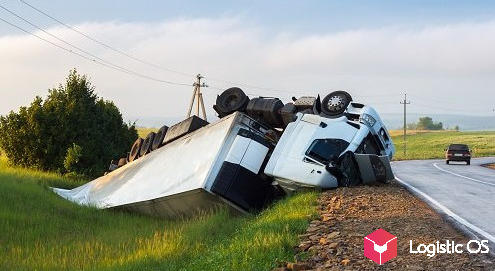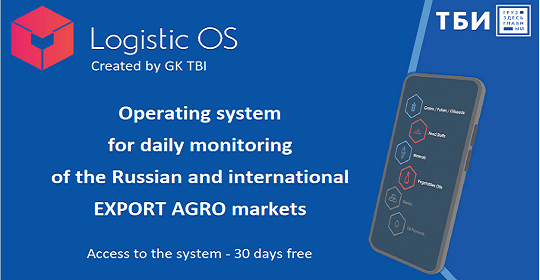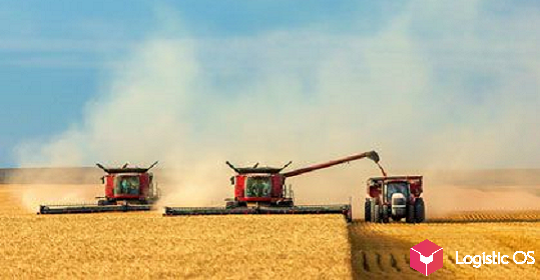Russian President Vladimir Putin signed a law expanding the powers of the Ministry of Transport in regulating the procedure for weight and dimensional control of vehicles.
For an ordinary road user, the question of overloading a vehicle, whether it be a passenger car or a truck, does not cause a dual answer: there should be no overload.
First of all, an overloaded vehicle is a serious hazard on the road. Residents of the South of Russia know firsthand what overloaded trucks with grain look like, especially at the pass at the entrance to Novorossiysk.
Driving at a speed of several kilometers per hour, some made at the dawn of restructuring, overturning on bends and in a straight line and threatening to brake failure.
Secondly, overloaded vehicles cause irreparable damage to the roadway.
Well, and thirdly, the transportation of goods «in the gray» is the lost taxes to the budget.

Now let’s look at this problem from the side of carriers and cargo owners.
This is especially true of the grain transportation market.
The source of the problem lies deep in the past, when mainly private traders worked in the freight market.
Cargo owners have always looked for lower delivery prices, and they were little interested in how the cargo would reach its destination: most importantly, for the specified price and on time.
As a result, any means were used: trailers were increased, boards were hung, additional sides were welded to dump trucks — what the freight carriers did not do to stay on the market.
Until now, 60% of cargo carriers in the grain market are private traders who continue to work with gross violations. The parties are 1.5-2 times higher than the norm.
The country has a huge market with fly-by-night companies, fictitious freight forwarders, etc.
Fearing losing contracts, carriers commit violations, bearing the risk of damage to cars and fines. All this contributes to unfair competition, the vehicle fleet is wearing out at an accelerated rate, and conscientious carriers leave the market.
Back in 2019, the Gruzavtotrans Association proposed to recover money for the damage caused to the infrastructure from both transport companies and cargo owners.
According to the association, such a solution would significantly reduce the number of violations, but the problem is that it is also not so easy to determine the cargo owner: some vehicles generally come with blank invoices, and both the owner and the buyer of grain in the port can act as a shipper.
The arrival of large players on the agro-industrial market, working in compliance with all cargo transportation standards, further exposed the existing problem.
And although, as before, 60% of transportation, for example, of grain, is carried out by private car owners, large companies do not intend to participate in the illegal competition.
The associations of conscientious agricultural market participants, which include United Grain Company JSC, Rif Trading House, Glencore International AG, Mirogroup Resources LLC and others, have developed a memorandum to counter the transportation of agricultural products by road with overload.
As follows from the memorandum, unscrupulous players gain a competitive advantage by reducing the cost of logistics, and buyers — «illegal» savings in the price of goods.
In addition, such a situation contributes to the premature wear of roads, stimulates the growth of corruption violations and, in general, inhibits the development of the market.
Shippers must ensure compliance with weight standards, carriers must not deliver consignments with overload, and terminals must refuse to accept vehicles with an increased permissible weight. For their part, customers should not use the services of companies that allow transhipments. This is discussed in the memorandum.
The arguments of some market experts, who consider it necessary to transport with overload, look rather strange, since, otherwise, this will increase the cost of logistics by tens of percent, Russian grain will become uncompetitive, and agricultural producers will have a decrease in profits.
This is roughly the same as if food manufacturers explained the addition of cheap, but dangerous to human health, ingredients by the need to maintain profitability.
VTB Bank, which owns 50% of the shares of Demetra-Holding LLC, which owns several agricultural enterprises, DeloPorts (also manages the grain terminal of KSK), as well as the agricultural holding Step ‘(part of Vladimir Sistema JSFC) is ready to join the memorandum. Evtushenkov).
The Ministry of Agriculture replied that they had not received the memorandum yet.
Meanwhile, on July 20, 2020, Russian President Vladimir Putin signed a law expanding the powers of the Ministry of Transport in regulating the procedure for weight and dimensional control of vehicles. The document is aimed at creating a network of truck weighing stations in Russia.
Until 2024, 387 ASVGK points (automated weight and dimensional control system) will be built on federal highways.
About 30 of these «smart» scales are already in test mode. The statistics of these points show that a third of the road carriers are violators.
And the damage to the budget of the Russian Federation is estimated at 2.5 trillion rubles.
ASVGK should give a competitive advantage to an honest carrier operating by the rules.

